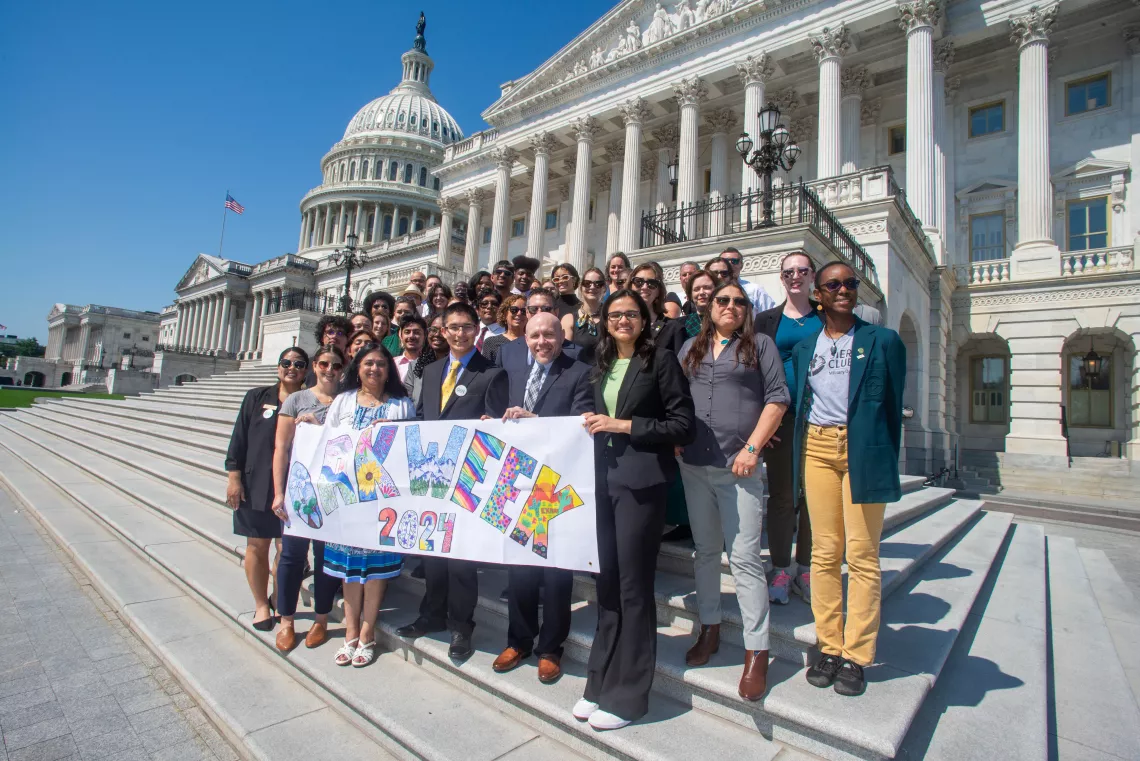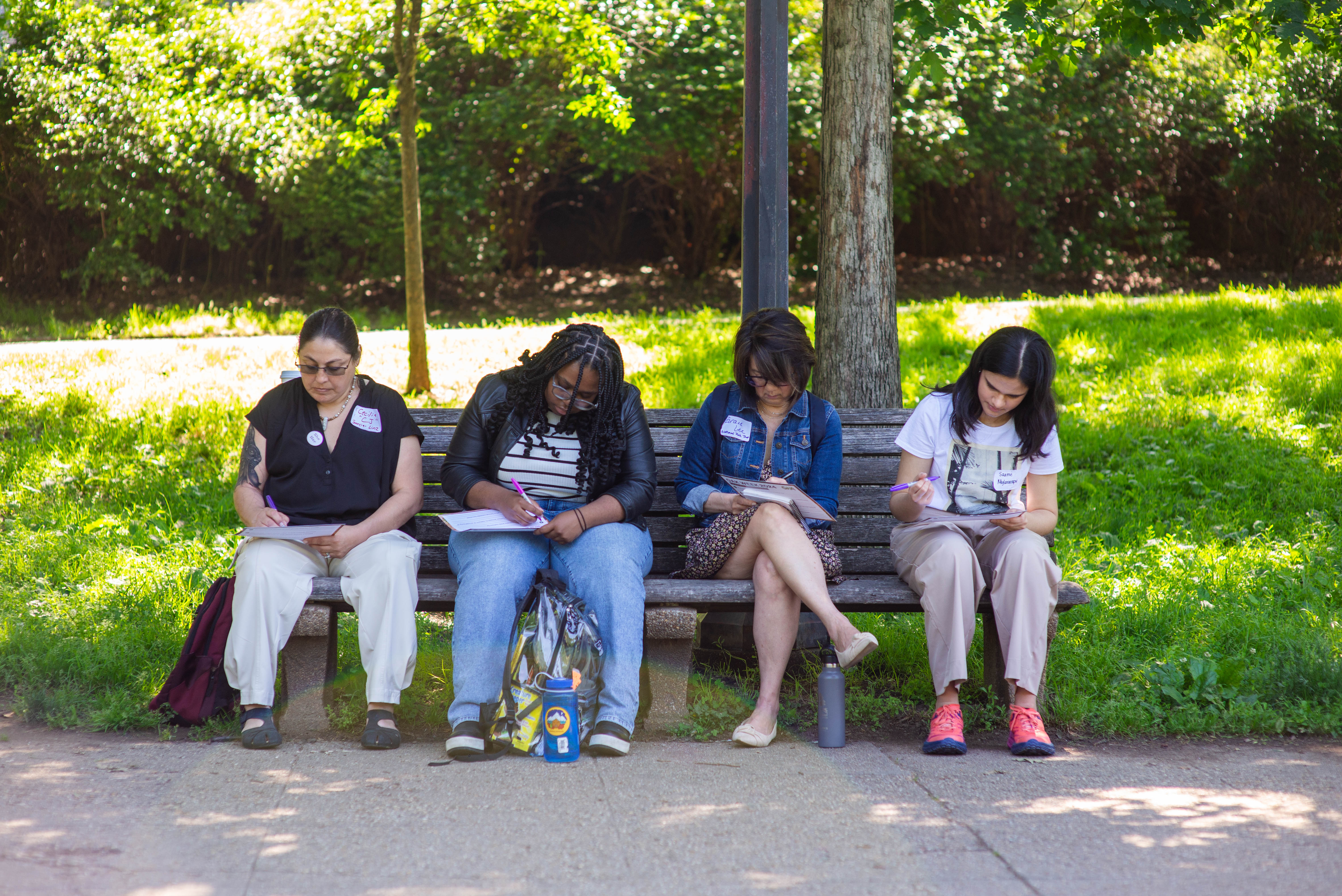As the Outdoors Alliance for Kids continues to grow, our annual advocacy event OAK Week evolves to match. The Outdoors Alliance for Kids (OAK) is a national strategic partnership of more than 130 organizations committed to ensuring equitable access to nature for children, youth and families. Since last year’s OAK Week, we’ve added new organizations, new steering committee members, new youth advisors, and new young activists and advocates into our fold. The work we do is only made possible through our combined efforts and the connections we hold, and for an ever-growing community, that means what we can achieve also grows each year.
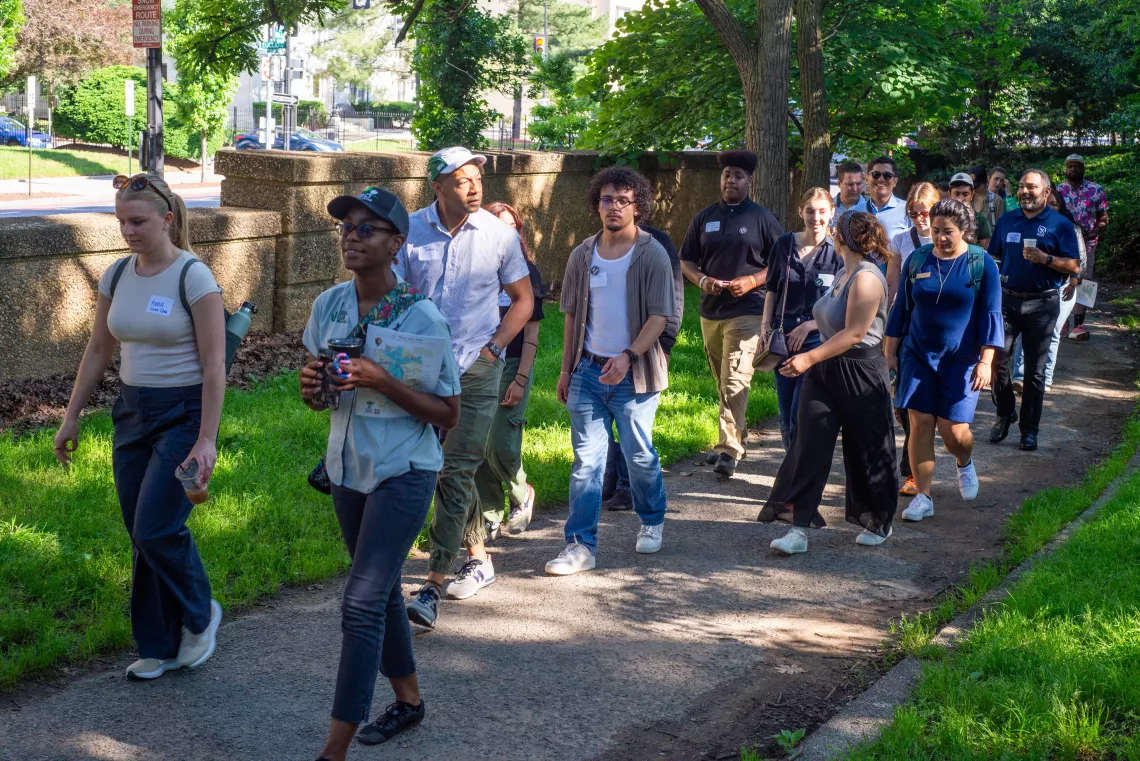
OAK Week kicked off on the first day with nearly 100 advocates attending, including more than 20 youth leaders from across the country, including California, Michigan, South Dakota, Texas, and Washington, D.C. The day began with an outing in Meridian Hill / Malcolm X Park to ground attendees with an experience in urban nature. Multiple participants local to D.C. even remarked that they had not realized this park existed in the city so close to where they worked or lived, or how beautiful it was. Following that, we were at the Josephine Butler Parks Center, where the day was packed with panels, workshops and passionate conversations about critical topics pertaining to engaging young people in the outdoors. From the Department of the Interior’s National Nature Assessment to panels on IRA implementation and the American Climate Corps to exploring your personal connection to the outdoors through reading and meditation, OAK Week offered a wide range of topics and activities for our diverse body of attendees.
The National Nature Assessment is a government-wide report led by the US Global Change Research Program, a component of the White House Office of Science and Technology Policy, set to publish in 2026 to assess how Americans view the importance of nature. This session was designed to hear from young people and the OAK community to shape the report, determine what questions need to be asked, and receive feedback directly from young people. We had over 30 submissions for this assessment, 24 of which came from youth directly.
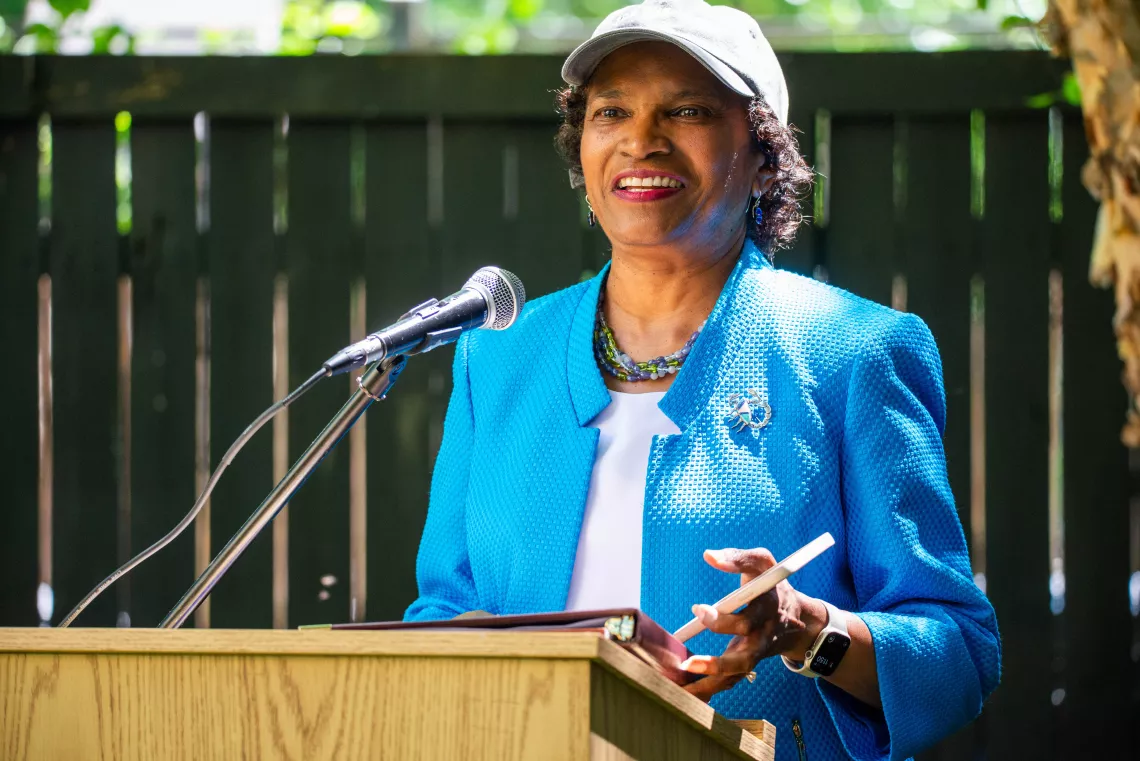
White House Council on Environmental Quality Chair Brenda Mallory spoke with our group, sharing highlights from the Biden-Harris Administration’s efforts in conservation, urban tree equity, and closing the nature gap.
“Everyone deserves access to clean air, clean water, and a healthy community,” she said during her address. “That means having access to nature which improves physical and mental health, but far too many communities currently lack access to the outdoors and those same communities are suffering disproportionately from extreme heat, pollution and underinvestment.”
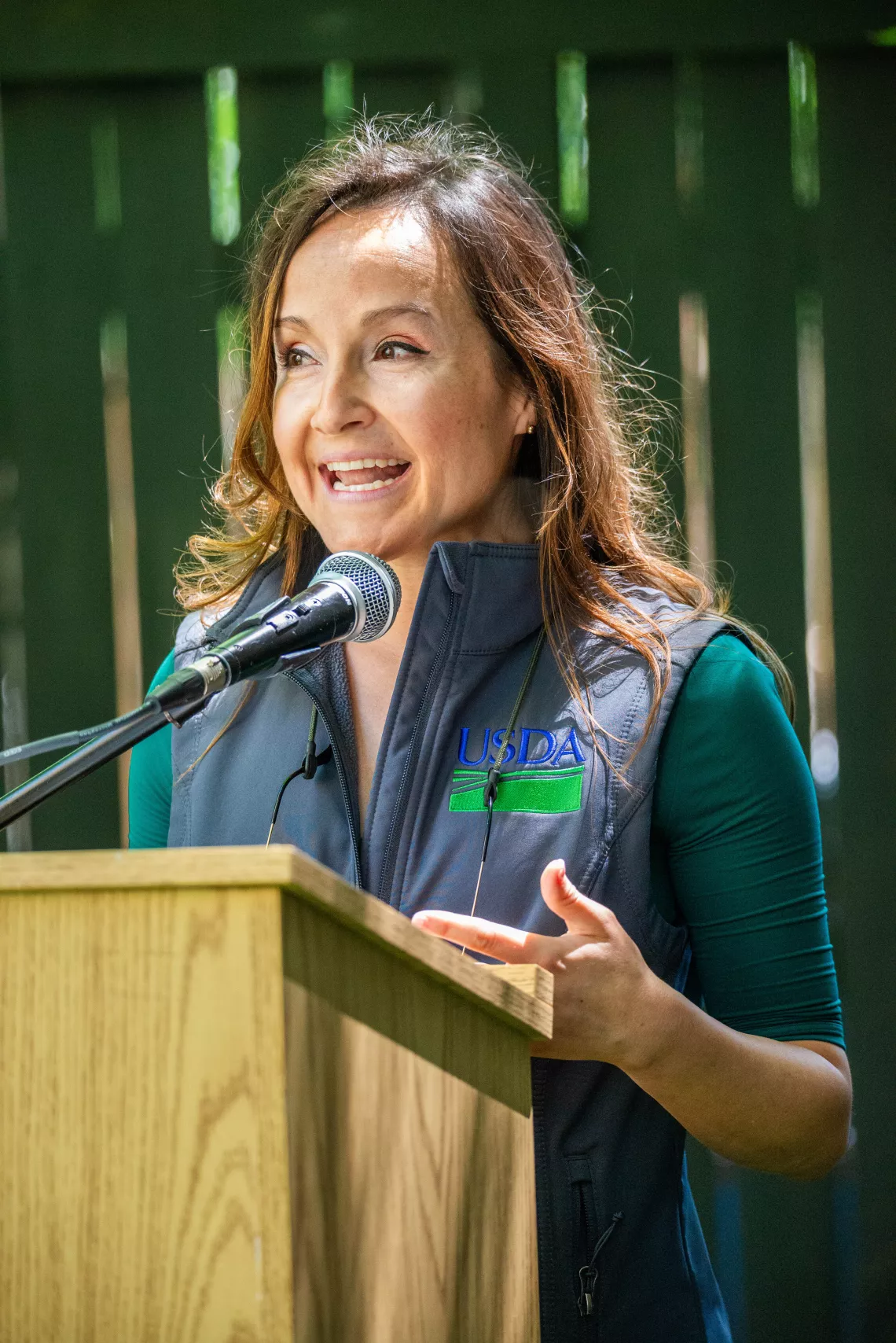
Andrea Delgado, Chief of Staff to USDA Under Secretary Homer Wilkes, attended multiple sessions, listening to the stories of attendees and youth leaders, before inspiring the whole group with her own story of how she was led to environmental work.
“I am here today because I cannot imagine my childhood without exposure to nature, and I’m really passionate about ensuring that we’re not just promoting equitable access to our existing public lands but where we can we’re also helping to bring trees to communities,” she shared in her remarks.
We ended the day with our annual awards ceremony, recognizing leaders in the field for their work to expand outdoor equity for kids and families. Award recipients were Akiima Price with Friends of Anacostia Park, Miho Aida formerly of NatureBridge, Sarah Cryder of City Kids Wilderness Project, Madelane Martinez – president of her high school’s Outdoor Adventure Club, and Reps. Nanette Diaz Barragán and Brian Fitzpatrick for their work on the Outdoors for All Act.
The second day was just as packed as the first, beginning with a lobby and storytelling training for participants, many of whom had never lobbied before congressional staff before. With around 50 attendees, the group split up to visit about 30 offices total to make their voices heard with their own elected representatives.
Among our priorities were urging the Senate to pass an outdoor recreation package such as the EXPLORE Act, and asking both chambers to expand the Every Kid Outdoors program and support critical funding for the American Climate Corps and the Land and Water Conservation Fund. In partnership with REI, also an OAK member, participants brought over 500 postcards from across the country advocating for policies to close the nature equity gap to share with representatives. It was an educational and empowering experience for everyone involved.
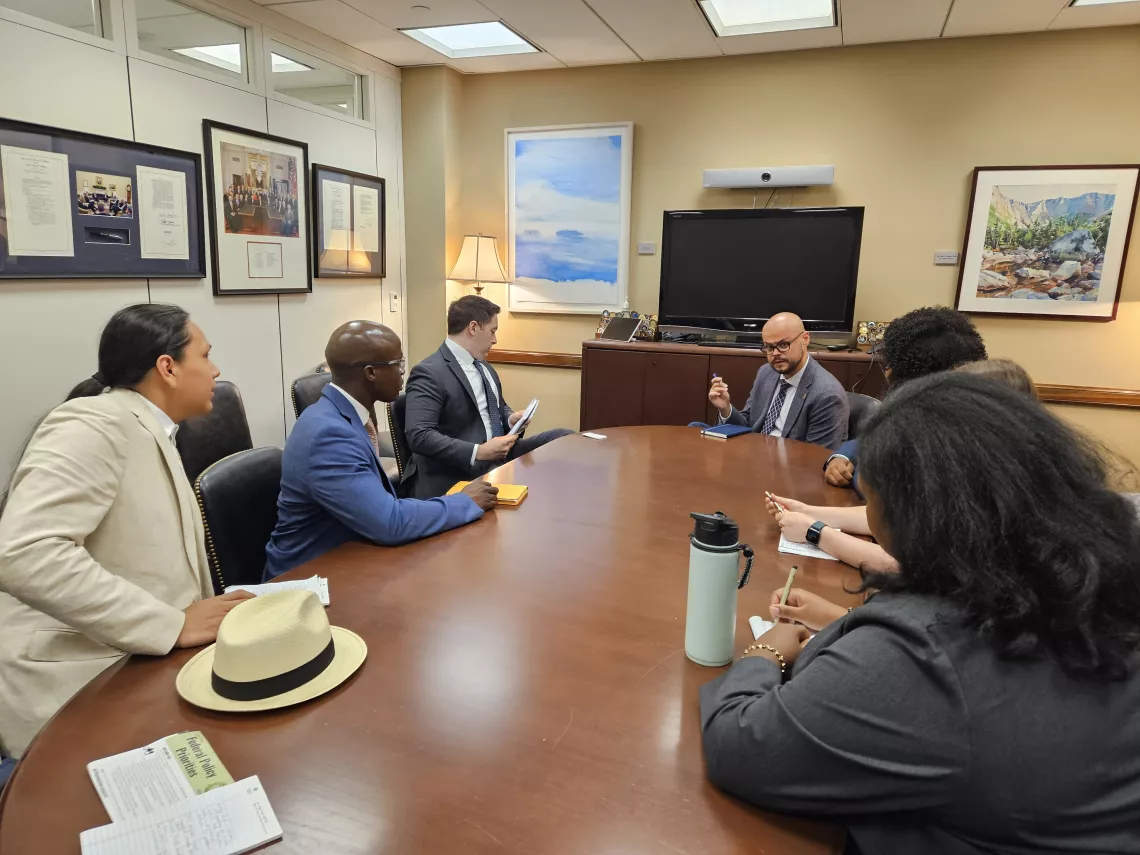
Throughout the year, OAK works through our nationwide network of members to close the nature equity gap and connect more kids, youth and families with nature. OAK Week is our annual opportunity to come together and work in person and in community. It’s also one of our main chances to uplift youth leaders and help them gain firsthand experience in advocacy work that can affect their futures and be their futures. This year was a hugely successful event, and I’m looking forward to a new web of people, experiences and achievements next year as well.
